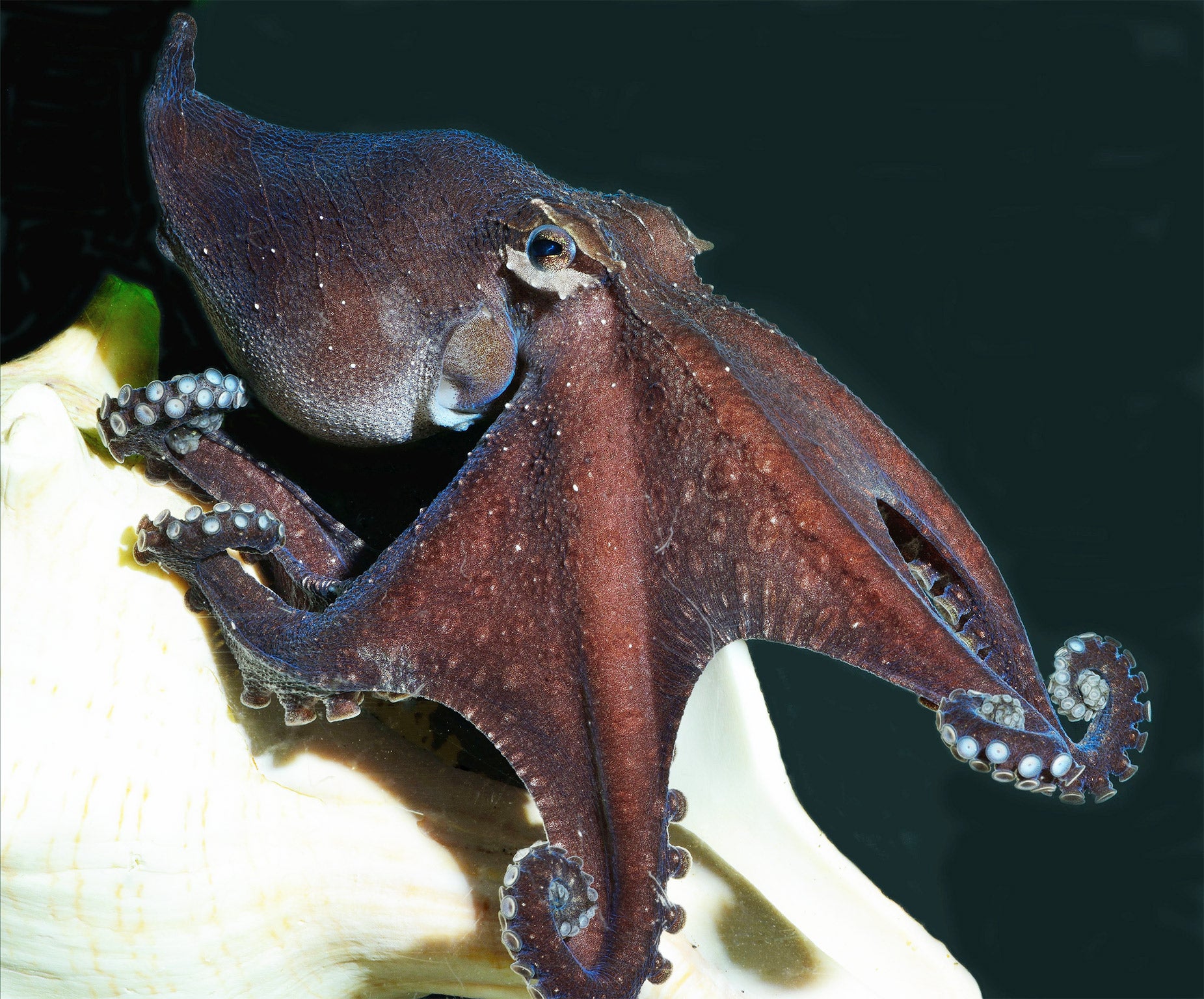Video shows the moment an octopus eats its prey by playing a trick on a shrimp
The octopus taps the shrimp on the opposite side of its body so that the startled creature jumps into the octopus’s eight arms

Video from biologists at the University of California shows the moment a Larger Pacific Striped Octopus catches a shrimp using its arm reach.
The footage comes after scientists recently decoded the genome of the octopus and discovered just how different it is to other intelligent creatures both on land and sea. It is so intelligent that it is the only invertebrate to be given special protection under the UK law governing the licensing of animal experiments.
Yet the intelligence of the octopus evolved far earlier than that of the “higher” vertebrates and its genome holds the secrets of how this happened, according to the researchers who have sequenced the entire 2.7 billion “letters” of the octopus’s genetic code – the first genome within the cephalopod group of predatory molluscs, such as the squid, cuttlefish and nautilus.
The video released by scientists at the University of California shows the octopus observing its prey from a distance, then slowly sneaking up on it.
The octopus approaches close enough to tap it on the opposite side of its body so that the startled creature jumps into the octopus’s eight arms.
“I’ve never seen anything like it,” said Roy Caldwell, a professor of integrative biology at the University of California, Berkeley.
“Octopuses typically pounce on their prey or poke around in holes until they find something.
“When this octopus sees a shrimp at a distance, it compresses itself and creeps up.”
Join our commenting forum
Join thought-provoking conversations, follow other Independent readers and see their replies
Comments
Bookmark popover
Removed from bookmarks